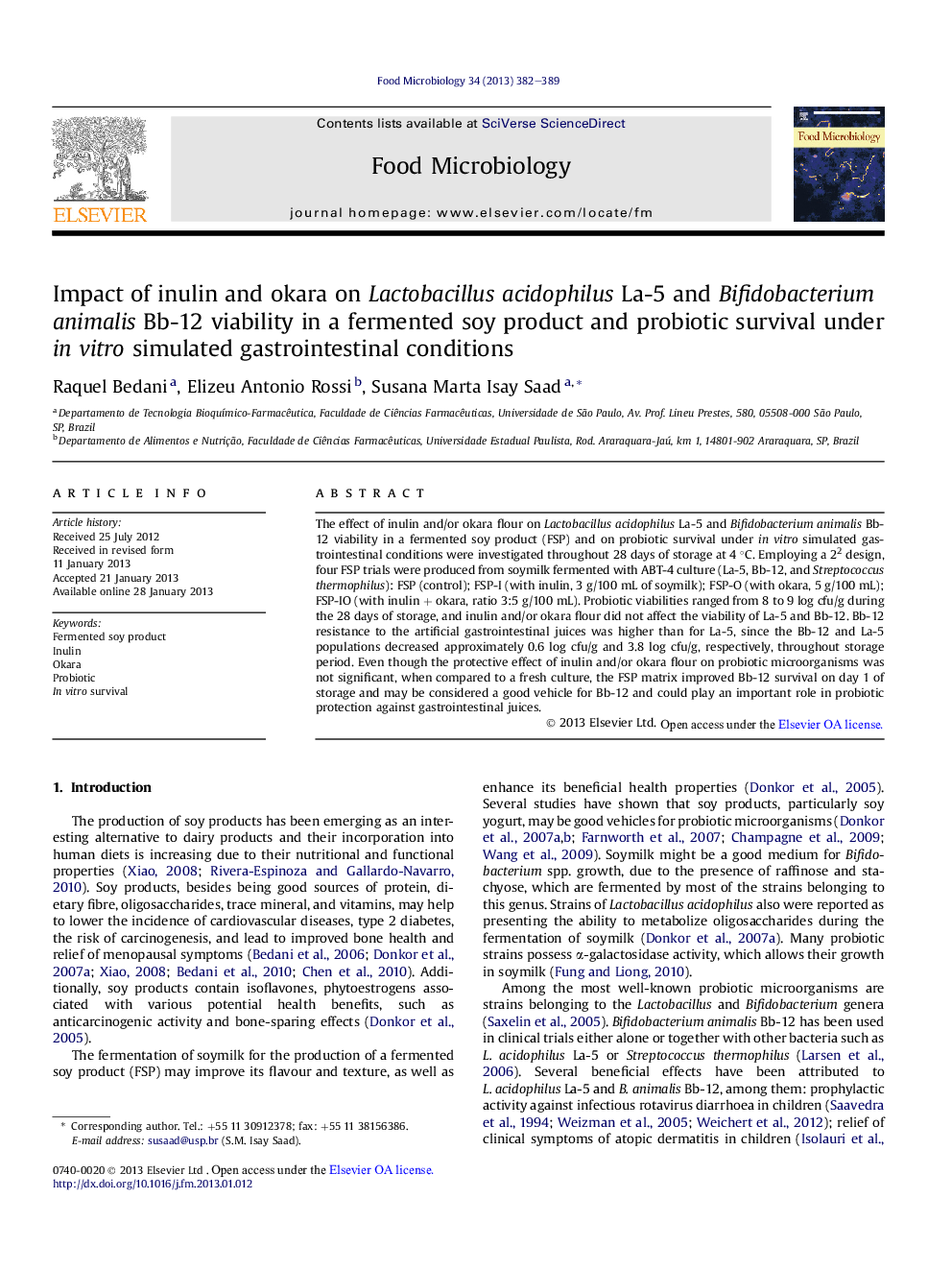| Article ID | Journal | Published Year | Pages | File Type |
|---|---|---|---|---|
| 6288953 | Food Microbiology | 2013 | 8 Pages |
The effect of inulin and/or okara flour on Lactobacillus acidophilus La-5 and Bifidobacterium animalis Bb-12 viability in a fermented soy product (FSP) and on probiotic survival under in vitro simulated gastrointestinal conditions were investigated throughout 28 days of storage at 4 °C. Employing a 22 design, four FSP trials were produced from soymilk fermented with ABT-4 culture (La-5, Bb-12, and Streptococcus thermophilus): FSP (control); FSP-I (with inulin, 3 g/100 mL of soymilk); FSP-O (with okara, 5 g/100 mL); FSP-IO (with inulin + okara, ratio 3:5 g/100 mL). Probiotic viabilities ranged from 8 to 9 log cfu/g during the 28 days of storage, and inulin and/or okara flour did not affect the viability of La-5 and Bb-12. Bb-12 resistance to the artificial gastrointestinal juices was higher than for La-5, since the Bb-12 and La-5 populations decreased approximately 0.6 log cfu/g and 3.8 log cfu/g, respectively, throughout storage period. Even though the protective effect of inulin and/or okara flour on probiotic microorganisms was not significant, when compared to a fresh culture, the FSP matrix improved Bb-12 survival on day 1 of storage and may be considered a good vehicle for Bb-12 and could play an important role in probiotic protection against gastrointestinal juices.
⺠Fermented soy probiotic product with inulin and/or okara stored at 4 °C for 28 days. ⺠Inulin and okara flour did not affect the high viability of La-5 and Bb-12 strains. ⺠La-5 was more sensitive than Bb-12 to simulated gastrointestinal conditions. ⺠Fermented soy matrix protected La-5 and Bb-12 against gastrointestinal juices. ⺠Inulin and okara did not increase survival of probiotics during the in vitro tests.
